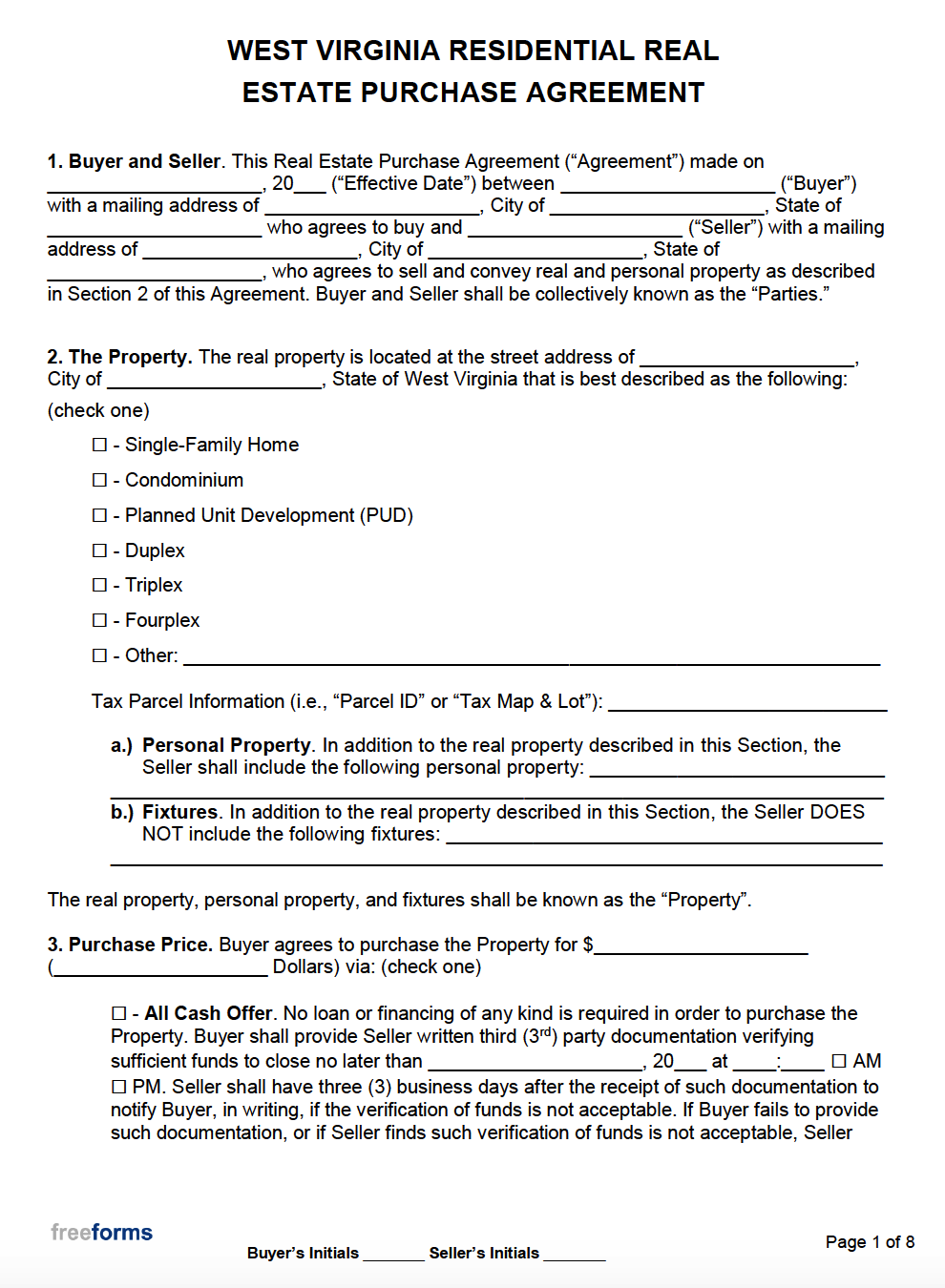The West Virginia purchase agreement creates written evidence of an arrangement in which a buyer acquires a property from a seller for a predetermined sum of money. The seller will initially draft the paperwork that represents an offer to the buyer for review. Should the buyer accept the terms and conditions of the sale, both parties can execute the document to solidify the agreement.
Buyer Beware (§30-40-19) – The state of West Virginia falls under the category of a “Caveat Emptor” which effectively translates to “let the buyer beware.” The term refers to the protection granted to the seller of the property after a transaction has taken place and the property has changed hands. The law does not allow for a seller to intentionally deceive the buyer, but it does put the burden onto the buyer to inspect the home before purchasing.
Required Disclosures
Lead-Based Paint Disclosure (42 U.S. Code § 4852d) – For residential properties constructed in 1978 or earlier, the agreement is needed to indicate the potential for subjection to adverse effects caused by lead-composed paint.
Seller Disclosure of Material Defects (§36-12-4) – Within the purchase agreement, there must be a portion designated to mentioning all known material defects the property presents to an interested buyer. Responsibility is placed upon the buyer to address any of the stated issues and either accept the property as-is or request the repair of any defect by the seller prior to the sale.
Realtor Versions
Contract of Sale – PDF



0 comments
Comments are closed.